A few years ago, Roger Federer was done. If you believe what you might have read in pretty much every sports site, newspaper and magazine, anyway.
"My guess is all Federer's fans will find themselves here [saying goodbye] in 2012," mourned Pranav Gandhi in GQ India in 2011.
"The real achievement for Federer going forward will be to retain his spot in the top five," suggested Eurosport in 2013.
"Is it the end for Roger Federer?" asked The Telegraph in 2013.
Every article carried a whiff of elegy. Every suggestion that the magic Swiss was nearing the final years of his career held a haunting promise of nostalgia for his play, his tricks, his persona. Only here’s the thing: Federer is still playing. More to the point, he's still pretty awesome at it. In fact, he's ranked higher than he was in 2011 and 2013. He's so damn good at what he does that he is still competing for majors and can make you hold your breath as he executes his astonishingly crisp game. Look no further than his performance in the US Open final against Novak Djokovic last month, when he narrowly fell in four sets, 6-4, 5-7, 6-4, 6-4.
Federer's epoch of dominance might be in the past, but he's still doing spectacular things – and largely unprecedented things for a male tennis player his age. At 34, he is playing exceedingly well in what should be the twilight of his career.

"Ten years ago I would have only hoped to be still able to play at 34. Yet here I am," the Swiss says from his house in Zurich a couple of days after his loss to Djokovic in New York. "I am number two in the world. I've scored titles this season already. I didn't win in the States but I played really well.
"Being Roger Federer is a pretty great feeling right now… I am going through a really exciting phase of my career, of my life. I can only be happy."
And why wouldn't he be? With the most Open-era Grand Slam men's singles titles (17) and weeks ranked No. 1 (302, including 237 consecutive weeks), most think of him as one of the greatest tennis players ever. They are right. From 2004 to 2006, Federer won at least 11 singles titles every year, a stretch of mastery that left his observers agape, and led to David Foster Wallace coining the phrase "Federer Moments" – "these are times, as you watch the young Swiss play, when the jaw drops and eyes protrude and sounds are made that bring spouses in from other rooms to see if you're OK." *
"Too many," he says when asked about his favorite Federer Moment. "I never thought I was going to be as successful as I have been. How it all turned out to be. I grew up hoping at Wimbledon one day, to be world number one, to go as far as winning tournaments over and over again. I achieved so much more than I thought I would. It has been magical really."
Even during his worst season – the bleak year that was 2013 – hampered by a balky back and a visible lack of confidence, he still went 45-17, lost to Andy Murray in the Australian Open semifinals, and finished the year ranked No. 6, results that most players a decade younger would be overjoyed to achieve.
"Being Roger Federer is a pretty great feeling right now."
Now, well past his prime, married and a father of four, he's having a sort of renaissance that few could have anticipated: 2015 has seen him put together a 53-8 record while winning five titles.
While most of his age-group peers – Marat Safin, Juan Carlos Ferrero, Tommy Robredo, James Blake, Lleyton Hewitt, David Nalbandian and the like – are either out of tennis or greatly diminished, time is treating Federer with a tenderness that almost defies reason.
Or perhaps he's the one whipping Father Time. While more than one athlete has been known to hang in the game longer than they should, Federer's success at this late stage of his career is solidifying his place among the greatest on sporting Olympus.
"I don't live in the past, I don't dwell on it," he says. "I still have plenty of goals moving forward. I love being on the court, traveling the world with my family, playing tournaments. I think it's wonderful that I can still do that at my age."
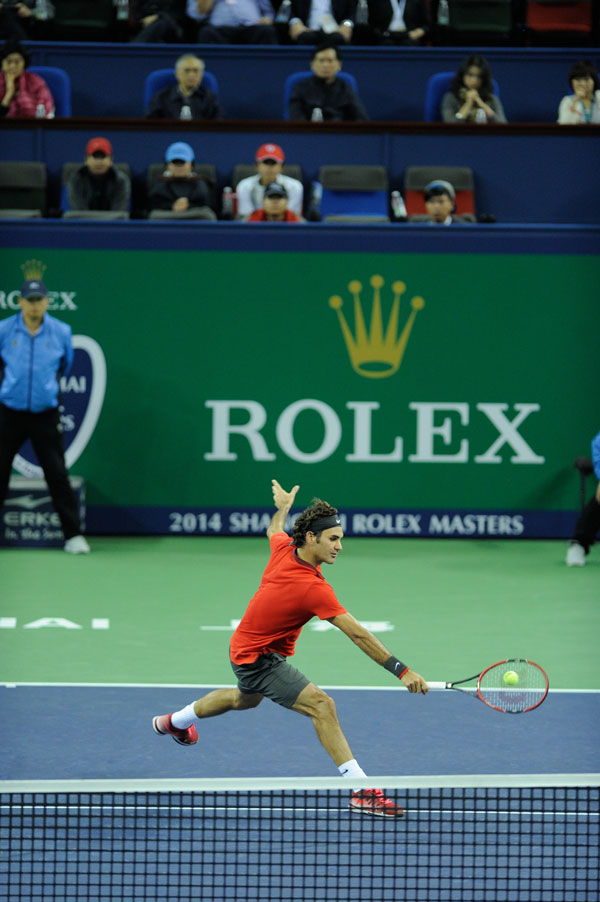
Anyone who watched his game at the Shanghai Rolex Masters last October can't but agree. The tournament saw Federer play himself back into contention for the top ranking, halting No. 1 Novak Djokovic's 28-match unbeaten run in China to book a place in the final. Federer, seeded third at the time, defeated his Serbian rival 6-4, 6-4 in an hour and 35 minutes to line up a meeting with Frenchman Gilles Simon, which he went on to win 7-6, 7-6, leaping past Rafael Nadal for No. 2 in the rankings for the first time in more than a year.
"The Shanghai Rolex Masters brings really good memories from the past," Federer says. "I have been attending since its launch. It's one of my favorite tournaments – a priority in my schedule. And after last year, it's particularly special for me."
For the first time in quite a long time, the Swiss put on a dominant, almost aggressive play – so much so that, after his loss, Djokovic said in an unusually brief post-match news conference that it was the best Federer has ever played against him.
At the beginning of the 2014 season, it was quite a different story. The Swiss ranked No. 8 – his lowest position in 12 years – and his back problem was seriously hindering his performance.
He came out of the slump by hiring Stefan Edberg, a former world No. 1 and grand slam champion. He also started using a bigger racket. But arguably the greatest change was his physical recovery. Suddenly, the Swiss Maestro was able to enjoy himself again.
Shifting his game
His beautiful style of play, with its occasional moments of apparent impossibility, has evolved to new heights, and adapted to the changes in his physical presence.
Always more an offensive than a defensive player – "it comes quite naturally to me," he says – his game has remained fresh, graceful, vibrant.
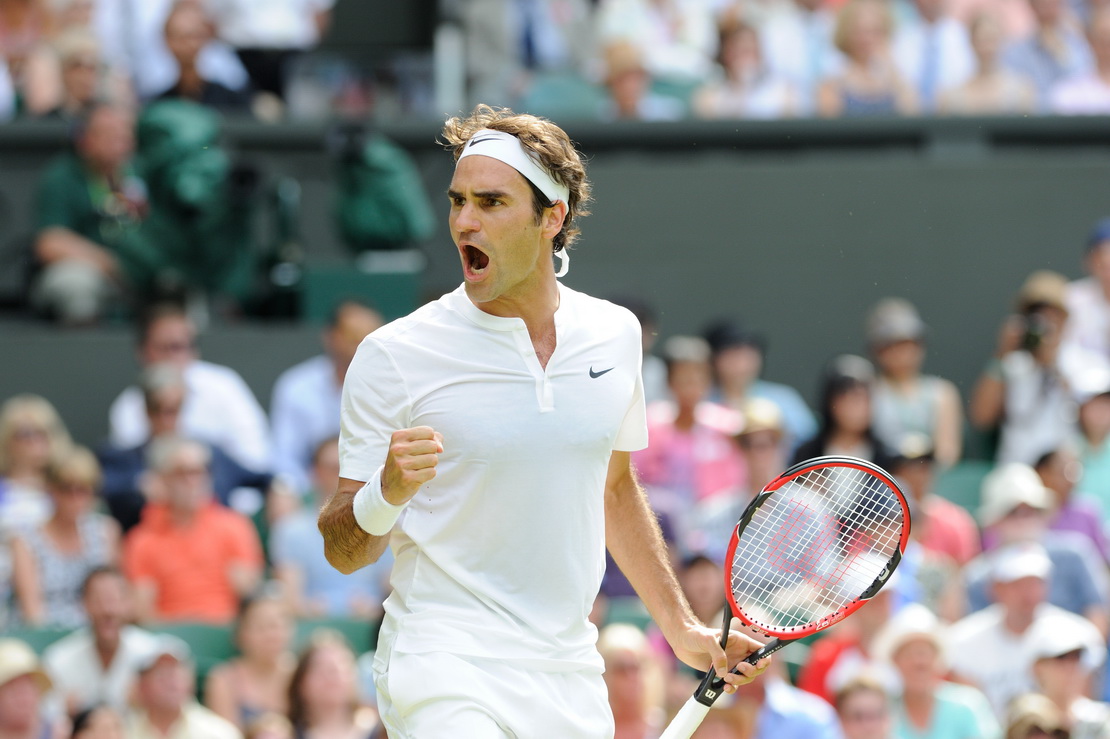
He's also been more relentless. Since hiring Edberg as his coach, he has begun to take more chances. He'll sneak in to the net when his opponents least expect it. He'll go for broke on a backhand return of serve, rather than chipping it back as he used to do almost every time. He'll even go for a full-speed net rush off an opponent's reserve – the so-called SABR shot (sneak attack by Roger) – which allows him to hit a half-volley right on the edge of the service box.
"I'm serving very well and playing quality tennis," he says. "Playing offensive gives you the opportunity to transition very quickly, and that's allowed me to go for great shots."
His approach to training has remained more or less the same. "If it has changed slightly, it is only because I am older. I can count on a solid base of fitness now, from all the years spent training as a teenager, so it's definitely more about quality over quantity these days."
Going into a match, his main focus is "on the game, my strengths and those of my opponent. His weaknesses, too. I try to find the rhythm quickly, because that usually comes after four or five games."
"Of course I'd like to have another opportunity to become world number one."
If former tennis star Andre Agassi wrote in his 2009 book Open of hating tennis, and "hating it with a dark and secret passion," Federer could hardly be more in love with the game at the moment. He likes what he's doing – being on tour, being competitive, being celebrated – and that's exactly the point.
"I have never fallen out of love with tennis," he says. "Of course there have been moments, particularly when I was younger, when I used to get really frustrated. I didn't enjoy training or competing all the time. Losing. But I've always picked up the racket again and kept going to practice, to the next match, the next tournament. I've never really lost motivation."
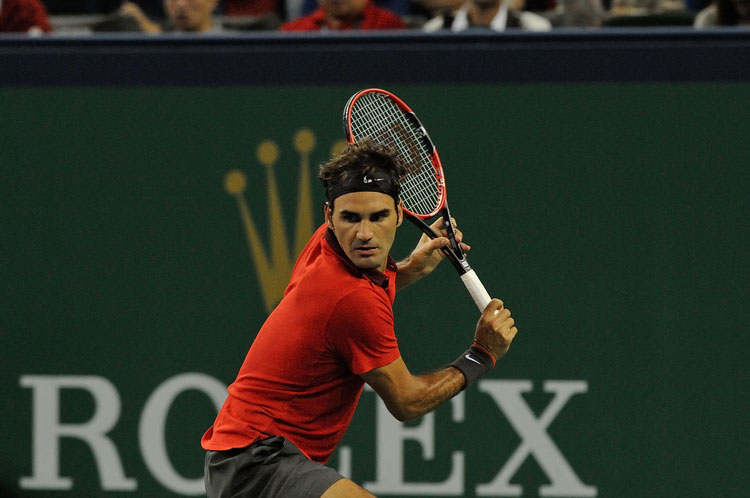
You can see it, too. When Federer returns to Shanghai on October 11 to begin his Rolex Tennis Masters title defense, watch how carefree he plays and, by doing so, how adventurous he is with his game. Observe how he first charges, then hits his return as a half volley from close to the service line and continues to rush the net, catching his opponent off guard. Take a moment to witness how good he feels on the court.
And realize that what you're seeing isn't a man taking a final victory lap, but a competitor out to prove he can still be the best. "I don't talk about it but of course I'd like to have another opportunity to become world number one," he says.
“I am aware it’s not likely – Novak is just meant to be up there right now,” he adds, always the diplomatic sportsman. “Yet I was able to beat him twice this year, and last year in Shanghai too. I know I’d have to beat him in every tournament to actually have a real shot at claiming the title back, and that is quite hard as he plays so well. But the thought is there.”
* About that famous Foster Wallace piece – 'Federer as Religious Experience' – which appeared in the Play section of the New York Times magazine in 2006, Federer says: "I remember the interview quite vividly. I did it in Wimbledon. Someone asked me if I could speak to David for half an hour or so. I came out of the interview not quite sure of what to think. I wasn't too sure where he was going with it, what he wanted to achieve. I didn't think much of it – just a slightly different interview. And this piece came out, and it was just fascinating. Of course it was far-fetched – it was almost a bit weird for me – but it no doubt offered a beautiful piece of sport journalism."

Federer's achievements
• The 34-year-old turned pro in 1998 and has been ranked in the top 10 since October 2002.
• Formerly world’s No. 1 for a record 302 weeks (including 237 consecutive weeks from 2004-2008.
• Holds the record of winning 17 Grand Slam singles titles (Pete Sampras and Rafa Nadal are second with 14, Djokovic has 13).
• One of seven players to capture a career Grand Slam (winning the US, French, Australian Open, and Wimbledon) and one of four in the modern era (Agassi, Nadal and Rod Lever are the others).
• Has won Wimbledon a record seven times (tied with Pete Sampras).
• Won one Grand Slam title a year from 2003-2010.
• Has reached each Grand Slam final at least five times (all-time record).
• Had reached a record 27 men’s singles Grand Slam Finals including 10 in a row from 2005 Wimbledon to 2007 US Open (both records).
• Made the semi-finals in 23 consecutive Grand Slam tournaments from 2004 Wimbledon to 2010 Australian Open.
• Last month, set a record at the US Open by playing his 64th consecutive Grand Slam tournament.
• Holds the career record for most Grand Slam match wins (297) and is the first to record 65+ wins in each tournament.
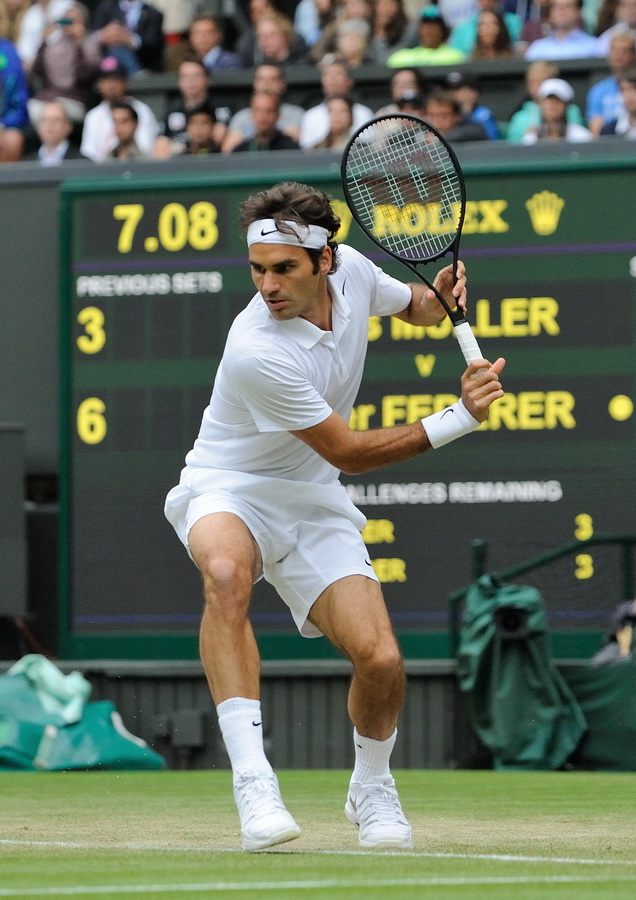
Career timeline
1998: Federer turns pro after ending the year as the world’s No. 1 in junior ranking.
2001: Defeats Pete Sampras at Wimbledon, ending Sampras’ attempt to win a record fifth straight Wimbledon.
2002: Enters the Top 10 for the first time.
2003: Wins his first Grand Slam (Wimbledon).
2004: Becomes the first player since Mats Wilander (1988) to win three Grand Slams in a year. (Would do the same thing in 2006 and 2007).
2004: Ranked world’s No. 1 for the first time.
2005: Defeats Andre Agassi in his last Grand Slam Final at the US Open.
2006 and 2007: Aka Roger’s Peak years. He wins all of the Grand Slams except for the French Open, losing to Nadal both times.
2008 turning point: Loses to Nadal twice at Grand Slams, including in the Wimbledon final (6-4, 6-4, 6-7 (5-7), 6-7 (8-10), 9-7). The nearly five-hour long match is considered the greatest match in the history of tennis.
2009: Wins the French Open for the first time.
2011: First year he doesn’t win a Grand Slam.
2012: Wins Wimbledon, regaining No. 1 ranking.
2013: Back injuries see his ranking drop to six (first time out of the top four in a decade), his record streak of 36 consecutive quarterfinals appearances at Grand Slams is snapped.
2014: In response to the bad year, he adds tennis great Stefan Edberg as a co-coach. He also changes racket for the first time in his career, ditching his trademark smaller racket for a more powerful frame used by Nadal, Djokovic and every other tennis player but the Swiss. Reaches a total of 11 finals (the most since 2007), including Wimbledon. Gains five titles and, after winning Shanghai, re-attains No. 2 ranking.
2015: Currently still No. 2, he lost in the finals at the US Open last month to Djokovic.
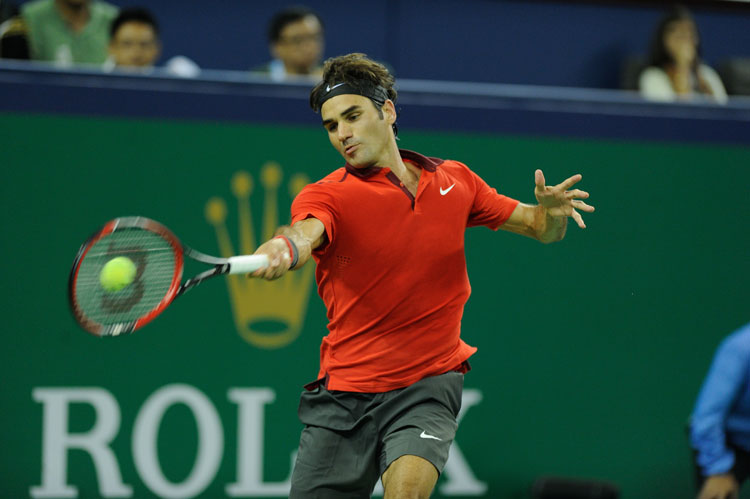
// Shanghai Rolex Masters take place Oct 11-18, 1pm, RMB100-900 (Oct 11-13), RMB1603,000 (Oct 14-15), RMB280-5,000 (Oct 16), RMB480-8,000 (Oct 17-18), RMB2,000-4,500 (tournament pass). Shanghai Qi Zhong Tennis Center, 5500 Yuanjiang Lu, by Kunyang Lu 元江路5500号, 近昆阳路 (400 610 3721, en.damai.cn)





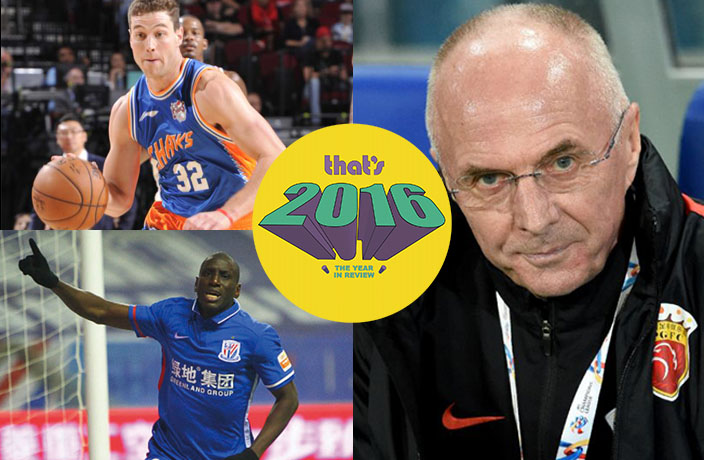

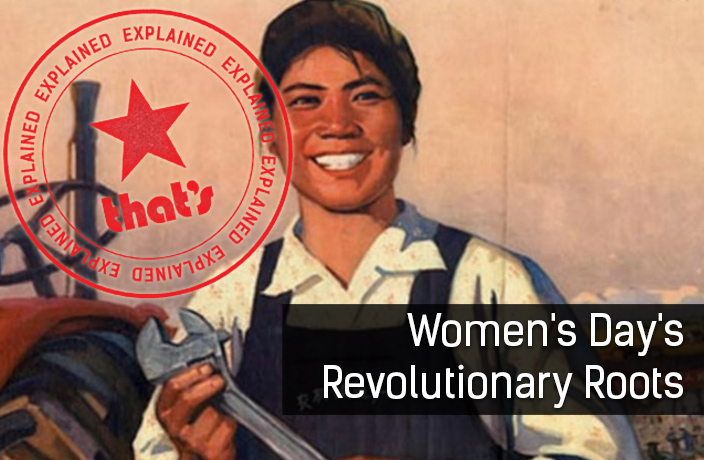














0 User Comments